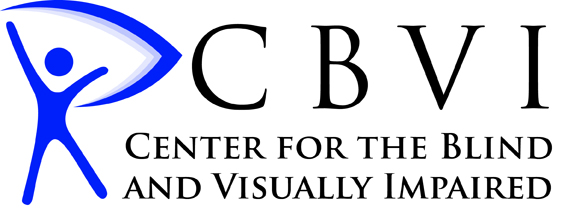In September of 1941, the Lions Club of Chester organized the Center for the Blind and Visually Impaired as a two employee workshop for blind individuals in a small garage at 3rd and Concord Streets in Chester. By 1943 the Center was registered as the Delaware County Branch of the Pennsylvania Association for the Blind (DCBPAB) with Arthur Copeland as the first director. Throughout the years, CBVI grew, expanded and developed as a multi-service agency to meet the ever changing needs of people with blindness and visual impairment in Delaware County and beyond.
THROUGH THE YEARS – A HISTORY OF CBVI
1946 | The agency relocated to 114 East 9th Street in Chester to accommodate the expansion of services which included prevention of blindness and recreation services.
1946 | DCBPAB continued operations of chair canning, rug weaving and the assembling of mops at the new location.
1948 | The agency was incorporated as a non-profit.
1951 | DCBPAB broke ground, at our present location.
1951 | The agency added Social and In-Home Teaching services
1953 | DCBPAB relocated to our present location.
1954 | The agency began its association with the National Industries for the Blind and began work on federal contracts under the Javits-Wagner O’Day Act in the manufacturing plant.
1956 | An addition to the facility was completed.
1967 | New equipment was installed in the workshop for the assembling of toilet bowl brushes.
1974 | DCBPAB included the assembling of binders to the workshop.
1976 | The agency was the prime sponsor and developer of Stinson Towers, located behind CBVI’s current building. Stinson Towers is a 150 apartment residence for the elderly and blind and visually impaired individuals.
1977 | DCBPAB announced the agency would provide escort transportation services.
1978 | The agency received a grant from the Nevil Foundation and the Bureau of Blindness and Visual Services for the development of a rehabilitation center.
1984 | The Elderly Blind Program was established.
1985 | DCBPAB received a resolution from Chester City Council declaring October be white cane month.
1990 | The agency started the first low vision clinic in the suburban Philadelphia area.
1991 | The agency celebrated 50 years!
1991 | DCBPAB renovated and expanded their building to accommodate program needs.
1992 | DCBPAB began its Computer Access Technology Training Program.
1992 | In-home Rehabilitation for the Elderly Program began.
1993 | The agency closed the manufacturing plant and focused its resources on community based services, which included significant expansion and program development in the rehabilitation and vocational evaluation programs.
1995 | DCBPAB changed their name to Delaware County Blind/Sight Center.
1995 | In conjunction with the Overbrook School for the Blind and support from the Bureau of Blindness and Visual Services, the summer IDEAL transition program for high school students was created.
1996 | In cooperation with National Industries for the Blind, the agency developed a customer service call center with General Services Administration to increase employment opportunities for https://wikiessays.com/editing-service individuals with blindness and vision loss.
1997 | The Delaware County Blind/Sight Center developed advanced computer training classes with the support of the Bureau of Blindness and Visual Services.
1998 | The agency had a significant expansion in the General Services Administration employment program.
2004 | The Delaware County Blind/Sight Center changed their name to Center for the Blind and Visually Impaired.
2004 | CBVI’s Sight Solution store opened.
2004 | CBVI partnered with Pennsylvania Industries for the Blind and Handicapped (PIBH) and took over management of two drivers license processing centers located in Fairhills and Bensalem.
2009 | CBVI formed an affiliation with Keystone Blind Association (KBA).
2010 | CBVI joined with KBA in their Keystone Kids Program for children with vision loss.
2012 | The Toilet Paper Factory began operations.
2013 | CBVI contracted with Cheney University to provide janitorial services for the facility, creating 30 jobs for blind and visually impaired individuals.
2016 | CBVI’s Apple Product Lab was designed and created.
2016 | CBVI is celebrating 75 years!

